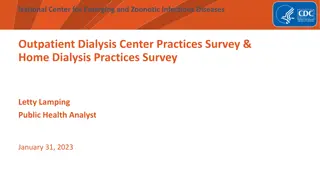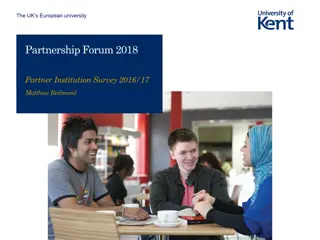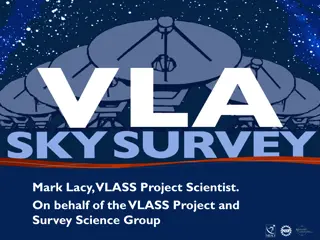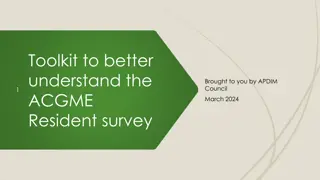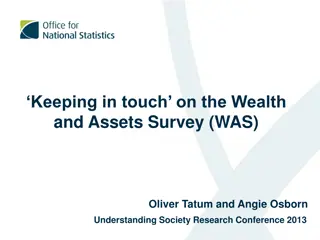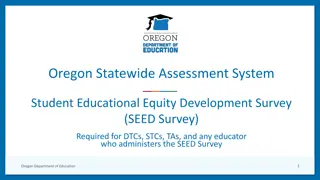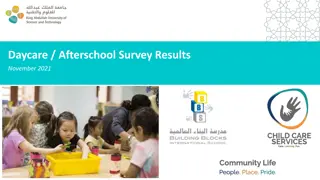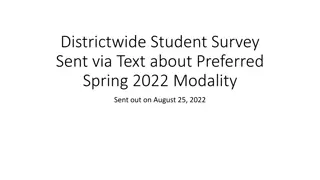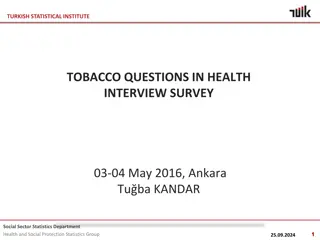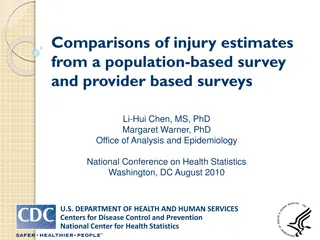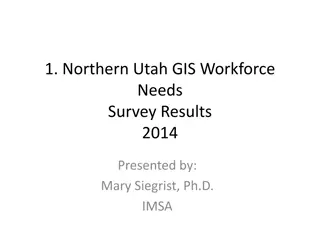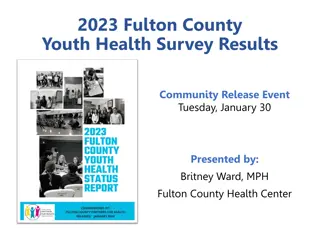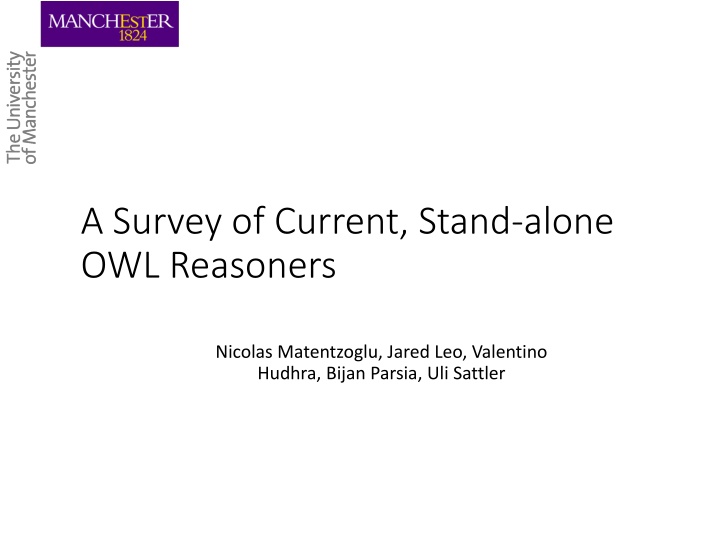
Current Stand-alone OWL Reasoners Survey Report
Explore the latest trends in OWL reasoner development through a comprehensive survey of stand-alone reasoners. Learn about motivations, historical perspectives, goals, methodologies, and more. Discover key insights to aid future knowledge base in OWL reasoning.
Download Presentation

Please find below an Image/Link to download the presentation.
The content on the website is provided AS IS for your information and personal use only. It may not be sold, licensed, or shared on other websites without obtaining consent from the author. If you encounter any issues during the download, it is possible that the publisher has removed the file from their server.
You are allowed to download the files provided on this website for personal or commercial use, subject to the condition that they are used lawfully. All files are the property of their respective owners.
The content on the website is provided AS IS for your information and personal use only. It may not be sold, licensed, or shared on other websites without obtaining consent from the author.
E N D
Presentation Transcript
A Survey of Current, Stand-alone OWL Reasoners Nicolas Matentzoglu, Jared Leo, Valentino Hudhra, Bijan Parsia, Uli Sattler
Motivation Quo vadis, OWL reasoner development? Trends Extensions Target some relevant folks to invite them to ORE Competition Workshop Terminological reconciliation What do we mean by OWL reasoner ? OWL vs DL, optimisations, calculi, many more Pointing reasoning related researchers to Potential collaborations Relevant related work Relevant experts Establish a sense of community Better tools for the users Hopefully one day focus some of the fragmented efforts After all we are a research area, not a market (yet, so much)
Abburu 2012 ? Mishra 2011 owl.cs@manchester Present Centralised information on reasoning Readily available updates on latest optimisations Truly independent extensive benchmarks Future Expert knowledge Incomplete reasoner listings Fragmented literature and benchmarking Reasonable surveys More centralised benchmarking Complete listings Past Dentler et al 2011 ORE 2.0 ORE! w3c Protege
Reasoner Surveys Reasoner Benchmark Performance Systematic approach Optimisations Practical considerations Competitions (ORE) Reasoner Meta Survey Surveying existing systems Supported features Categorisation & Landscape Methodology
Goals Identify all stand-alone (current) reasoners that will be able to process at least a subset of OWL Problem: Exact scope (OWLIM, Jess, etc) Distinguish proof of concept Extract interesting characteristics Group reasoners by reasonable criteria Get a sense of the direction reasoner developing is heading Provide foundation for future KB of OWL Reasoning OWL Reasoner Ontology
Materials and Methodology We survey current, stand-alone, OWL reasoners current... updated/introduced since Jan 2012 stand-alone... intended to be used by itself OWL... dealing with a defined fragment of OWL. Reasoner selection In: public lists + systematic review + previous surveys Systematic review by-product 68 initial reasoners added to the pool Check the most up-to-date usage. Meets the criteria? 35 final reasoners selected Online questionnaire Designed by reasoner developers, logicians and empirical researchers Sent to known developers of selected reasoners Final categorisation Mainly developer response, sometimes expert review (calculus)
Reasoner Characteristics Utility User perspective What can it be used for? Calculus Developer perspective How is functionality realised?
Reasoner Characteristics - Utility Supported reasoning services : Classification Query Answering Data Access Consistency Explanations etc. Expressivity levels : OWL Profile (OWL 2 EL ... OWL 2 DL) DL Fragment (EL ... EL+ ... EL++ ... ALC ... SROIQ(D)) Soundness and completeness With respect to what?
Reasoner Characteristics - Calculus Model Construction: Building models to test knowledge base consistency Normally used in highly expressive fragments of OWL 2 DL Mainly used for automata-based and tableaux techniques Consequence-Based Reasoning: Relies on adding logical consequences to the knowledge base Most commonly used for light weight fragments (EL+(+)) Rule based, saturation, resolution etc. Rewriting: Expands knowledge base by rewriting facts for a specific task Query answering, structural transformations
Living Semantic Platform KARMA HydrOWL PAGOdA Results 35 Reasoners
Results All calculi were grouped into 4 categories True Hybrid vs. Pseudo Hybrid Model construction Racer FaCT++ Pellet fuzzyDL HermiT LiFR DRAOn JFact BUNDLE Konclude TReasoner TRILL TRILLP Consequence-based Rewriting BaseVISor CEL Snorocket jcel TrOWL ELK DBOWL DistEL ELepHant WSClassifier DeLorean DReW Mastro ontop Clipper ELOG RDFox RuQAR Modular Chainsaw MORe
Results One language to rule them all OWL API rules
Results: Expressivity and services Services Satisfiability checking (22) KB consistency (24) Entailments checking (19) Classification (21) Realisation (15) Conjunctive query answering (11)
Other features Little use of modularity (4) Incremental (3) Classification (4) Some use of parallelisation Classification (6) Prep-pro (4) Some reasoners tuned to particular ontologies SNOMED FMA Some experiments involving mobile technologies Run on Android (5) Never (24)
Results: Recent Activity 2016 2014 2012 2010 2008 2006 2004 2002 2000 1998 1996 0 5 10 15 20 25 30 35
Future Directions Parallelism and Concurrency (6) Incremental reasoning (4) Other topics of interest: Reasoning with large scale datasets Meta-modelling and mete-reasoning Proof-based explanations Interfaces that support access to tableaux structure
Conclusions There is still a lot going on in the world of OWL reasoning While the survey was exhaustive , some reasoners where surely missed out The data and knowledge generated as part of the service will be made accessible in for of a knowledge base but whoever wants to see the data now: email us!



